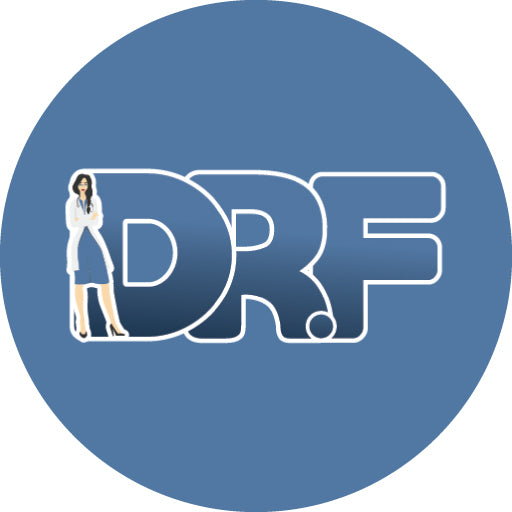Congenital heart disease, genetic conditions and unhealthy lifestyle habits can put teens at higher risk for heart attack.
Heart attacks in people under 40 have been increasing over the past decade, and that includes teenagers. If your heart doesn’t get the blood it needs, it could result in a heart attack — no matter your age.
It’s important to note that a heart attack and sudden cardiac arrest aren’t the same thing, says pediatric cardiologist Christina Fink, MD.
Sudden cardiac arrest is when your heart stops beating for any number of reasons. Heart attacks (myocardial infarctions) occur when your arteries narrow and block the blood flow out into your heart. They’re one rare cause of sudden cardiac death for teens.
What’s concerning is that individuals who have a heart attack at any age increase the risk of having a second one. Dr. Fink shares what you need to know about teenagers and heart attacks and the signs or symptoms you should look for.
Can Teenagers Have Heart Attacks?
Heart attacks tend to occur in older adults who have a lifetime of cholesterol and plaque built up in their arteries. But they can happen in teenagers.
“Heart attacks are extremely rare for people ages 15 to 24,” Dr. Fink says. “Heart attacks tend to occur only if there’s an underlying condition — either genetic or acquired — affecting the heart or arteries.”
What Can Cause Heart Attacks In Teenagers?
Several conditions or factors may affect a teenager’s risk for heart attack, including:
Congenital Heart Disease
Congenital heart disease (a heart condition you’re born with) involves your heart’s anatomy and can affect flow through the coronary arteries. Some examples include:
- Aortic valve stenosis, or narrowing of the aortic valve separating the left bottom chamber from the aorta (the large blood vessel coming off of the left side of the heart)
- Abnormal origins of the coronary arteries (arteries that supply blood to the heart)
- Thickening of the bottom chamber of the heart (hypertrophic cardiomyopathy), which people can be born with or can develop over time
If congenital heart disease goes undetected and untreated, your risk of cardiac arrest goes up. But even with treatment, congenital heart disease that affects your heart’s structure may increase your risk of narrowed arteries and heart attack.
“In these cases, you may have a problem with the way your heart is structured, resulting in inadequate blood flow to your heart,” Dr. Fink states. “These are rare conditions. But they’re probably the ones that most people worry about when they think about inadequate blood flow and sudden death.”
Homozygous Familial Hypercholesterolemia
Familial hypercholesterolemia is a rare genetic disorder that can cause high cholesterol in children. The type of condition you have depends on whether you have one or two gene mutations (changes):
- Heterozygous familial hypercholesterolemia (HeFH) involves one gene mutation. It’s more common — it’s estimated that up to 1 in 250 people have it. HeFH puts you at a higher risk of having a heart attack earlier than the general population, but typically, not as early as your teen years.
- Homozygous familial hypercholesterolemia (HoFH) includes two gene mutations. It causes very high cholesterol levels from an early age. HoFH is extremely rare — 1 in 250,000 people have it. Many develop coronary artery disease and aortic stenosis by the time they’re teenagers.
“HoFH is more likely to cause a heart attack in teenagers,” Dr. Fink notes. “But if you have that type, you’ll likely know it because both of your parents have it and probably screened their children for it. So, you can work with a cardiologist from an early age to manage your cholesterol level and heart health.”
Complications From Kawasaki Disease
Kawasaki disease (KD) typically affects children under 5. Experts don’t know what causes KD, but it’s an inflammatory disease that can affect several parts of the body, including your heart. If it goes undiagnosed and untreated, KD can damage your heart and blood vessels in the following ways:
- Kawasaki disease causes inflammation of the coronary arteries. This can cause coronary artery dilation (enlargement) and can increase risk of clotting in the coronary arteries, which impairs or blocks blood flow and can cause a heart attack. “Some patients who have coronary artery dilation from KD need to be on aspirin or even blood thinners for months or possibly for the rest of their lives after the acute illness,” shares Dr. Fink.
- Some of the coronary arteries can develop narrowing (stenosis) after the inflammation resolves. This can also impair blood flow through the coronary arteries and lead to ischemia (inadequate blood flow to your heart) and possibly, a heart attack.
- People with KD are also at risk of developing abnormal levels of cholesterol and plaque.
Approximately 1 in 4 children who don’t receive treatment for KD develop heart-related complications, putting them at higher risk of heart issues later in life.
“If we don’t treat Kawasaki disease, enlarged coronary arteries and clots can cause a heart attack,” Dr. Fink reiterates. “But with prompt treatment, most children can fully recover from KD.”
Unhealthy Lifestyle Trends
A teenager’s risk for heart disease and heart attack largely depends on genetics and risk factors they can’t change. But some lifestyle choices within your control can also affect your risk.
As a teen, your risk of heart attack may increase because of certain lifestyle choices:
- Being inactive raises your risk of having obesity, Type 2 diabetes, high blood pressure and high cholesterol.
- Eating an unbalanced or processed diet can lead to obesity and Type 2 diabetes, which are all risk factors for heart attacks.
- Smoking can increase plaque buildup and the likelihood of a blockage.
- Using drugs, such as cocaine, is proven to cause cardiac complications.
Teenage Heart Attack Symptoms
Heart attack symptoms in adolescents may be subtle and different from what you see in movies. For instance, in kids and teens, symptoms like chest pain or tightness (when you aren’t being active) are rarely warning signs of a heart attack. Those symptoms are more likely due to muscle pain, breathing issues, acid reflux or anxiety.
Heart symptoms in teens that are more concerning involve inadequate blood flow to the heart muscle and include:
- Chest pain, pressure or tightness during exercise
- Passing out during exercise
- Trouble breathing during exercise that’s not clearly from asthma or other lung conditions
According to the American Heart Association, sudden coronary symptoms may present differently in people with Kawasaki disease.
In older children who have significant enlargement of the coronary arteries (coronary artery aneurysms) from KD, ischemia may also present as:
- Arm or abdominal pain
- Breathlessness
- Vomiting
- Skin discoloration
In infants and young children who had KD and develop inadequate coronary artery flow or heart attack, they may present with:
- Non-specific pain (the location is difficult to locate)
- Unexplained crying and restlessness
- Pale appearance and sweating
“Chest pain and passing out when you exercise are two more concerning symptoms,” Dr. Fink says. “But even those symptoms could be caused by other issues. That’s why you should always be evaluated by your primary care provider right away, who can refer you to a cardiologist for immediate evaluation and care, if needed.”
How To Lower Teenage Risk Of Heart Attack
Heart attacks in teenagers are rare. But it’s always a good idea to be aware of risk factors and take whatever steps you can to decrease your risk of heart attack.
Dr. Fink recommends these steps to keep your young heart healthy:
- Attend all recommended health appointments, especially if you have a congenital heart disease or are an athlete living with a heart condition.
- Learn your biological family history to identify and treat any inheritable or genetic conditions early.
- Live a healthy lifestyle that includes regular exercise and a healthy diet. Avoid smoking, drugs and excessive alcohol.
- Report unusual symptoms to identify underlying health issues quickly.
“Heart health is a lifelong endeavor,” Dr. Fink reinforces. “Even if you aren’t at high risk for heart attack as a teenager, healthy habits you form when you’re young can reduce your heart disease risk as you age.”
Important Notice: This article was also published at https://health.clevelandclinic.org where all credits are due.
Disclaimer
The watching, interacting, and participation of any kind with anything on this page does not constitute or initiate a doctor-patient relationship with Dr. Farrah™. None of the statements here have been evaluated by the Food and Drug Administration (FDA). The products of Dr. Farrah™ are not intended to diagnose, treat, cure, or prevent any disease. The information being provided should only be considered for education and entertainment purposes only. If you feel that anything you see or hear may be of value to you on this page or on any other medium of any kind associated with, showing, or quoting anything relating to Dr. Farrah™ in any way at any time, you are encouraged to and agree to consult with a licensed healthcare professional in your area to discuss it. If you feel that you’re having a healthcare emergency, seek medical attention immediately. The views expressed here are simply either the views and opinions of Dr. Farrah™ or others appearing and are protected under the first amendment.
Dr. Farrah™ is a highly experienced Licensed Medical Doctor certified in evidence-based clinical nutrition, not some enthusiast, formulator, or medium promoting the wild and unrestrained use of nutrition products for health issues without clinical experience and scientific evidence of therapeutic benefit. Dr. Farrah™ has personally and keenly studied everything she recommends, and more importantly, she’s closely observed the reactions and results in a clinical setting countless times over the course of her career involving the treatment of over 150,000 patients.
Dr. Farrah™ promotes evidence-based natural approaches to health, which means integrating her individual scientific and clinical expertise with the best available external clinical evidence from systematic research. By individual clinical expertise, I refer to the proficiency and judgment that individual clinicians acquire through clinical experience and clinical practice.
Dr. Farrah™ does not make any representation or warranties with respect to the accuracy, applicability, fitness, or completeness of any multimedia content provided. Dr. Farrah™ does not warrant the performance, effectiveness, or applicability of any sites listed, linked, or referenced to, in, or by any multimedia content.
To be clear, the multimedia content is not intended to be a substitute for professional medical advice, diagnosis, or treatment. Always seek the advice of your physician or other qualified health providers with any questions you may have regarding a medical condition. Never disregard professional medical advice or delay in seeking it because of something you have read or seen in any website, video, image, or media of any kind. Dr. Farrah™ hereby disclaims any and all liability to any party for any direct, indirect, implied, punitive, special, incidental, or other consequential damages arising directly or indirectly from any use of the content, which is provided as is, and without warranties.

